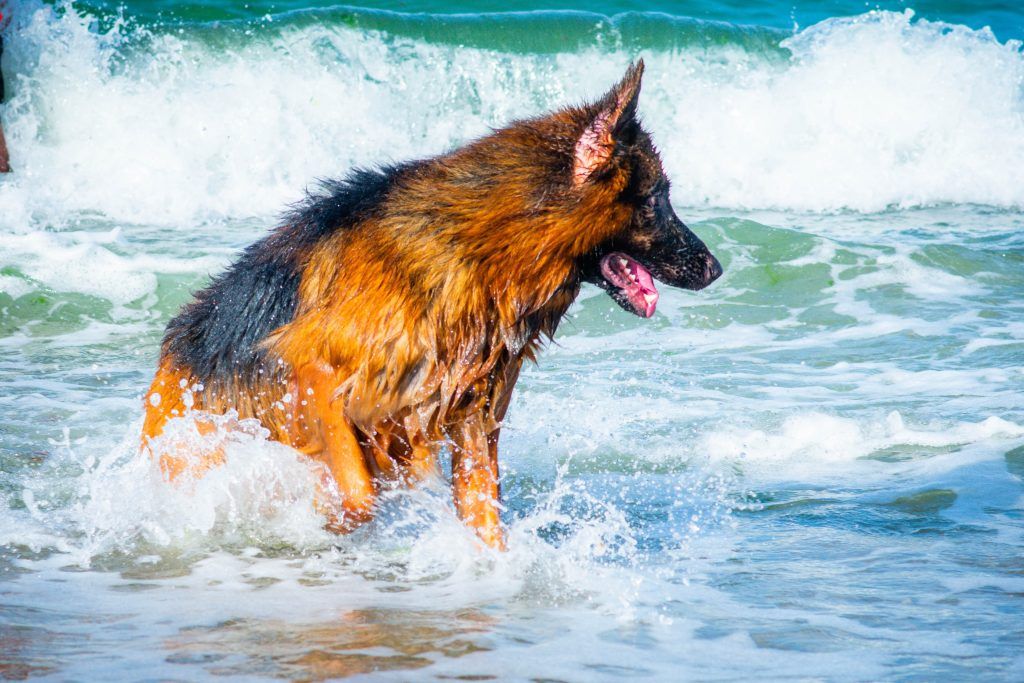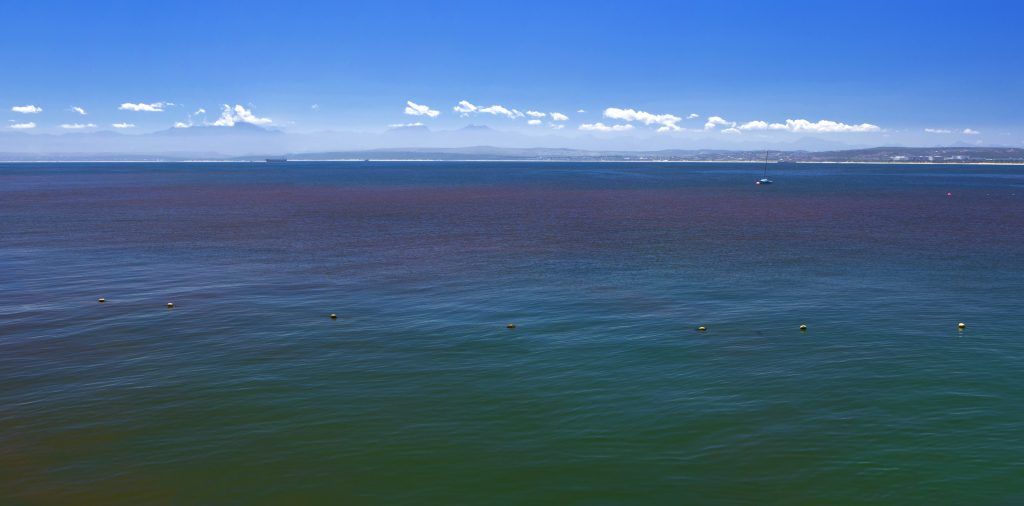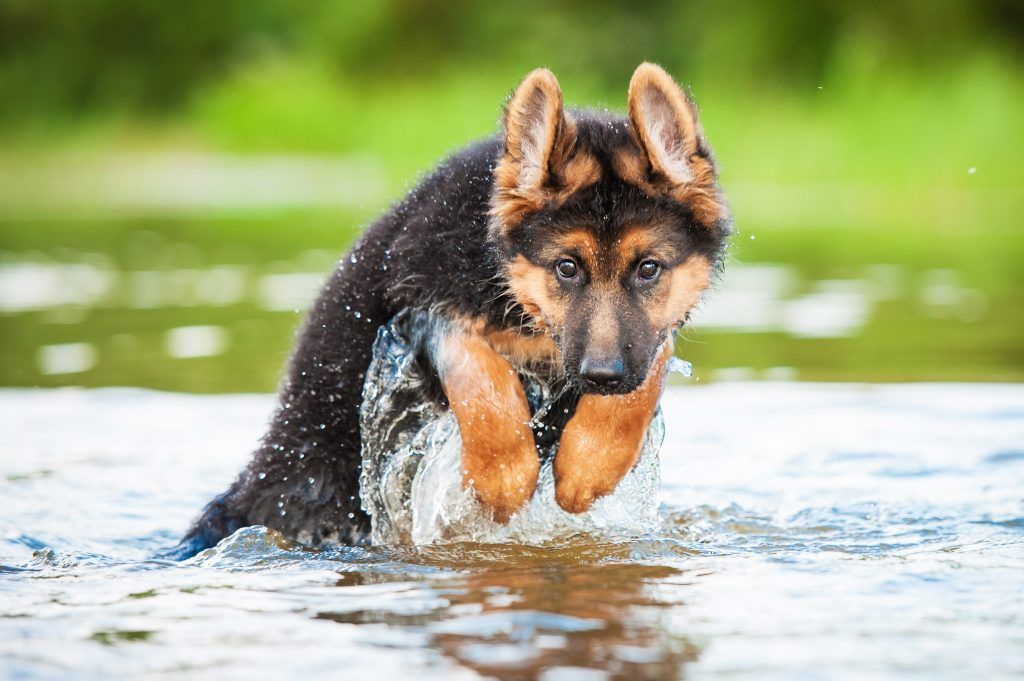When you think of a German shepherd, you typically think of a physically strong, athletic dog – which isn’t wrong. They are incredibly fast for their larger size and have practically never-ending endurance. They’re also known for their loyalty and willingness to do whatever needs to be done — an essential aspect for a dog bred to be a herder.
But can German shepherds swim? Do they like to swim?
Let’s find out!
Do German Shepherds Like to Swim
The answer to this question is not straightforward, as it depends on the individual dog and their experiences. Some German shepherds love to swim and will happily jump into any body of water, while others fear water and will avoid it at all costs.
Generally speaking, German shepherds have the potential to like swimming, as they are not averse to water by nature. However, their attitude towards swimming primarily depends on how they were introduced to water as puppies and how often they are exposed to it as adults.
If a German shepherd had positive and fun experiences with water as a puppy, they are more likely to grow up liking to swim. On the other hand, if they had negative or traumatic experiences with water as a puppy, they are more likely to grow up fearing or disliking swimming.
Therefore, it is important to introduce your German shepherd to water in a gentle and gradual way and to make it a rewarding and enjoyable activity for them. You can use treats, toys, praise, and encouragement to motivate your dog to swim and to associate water with something positive.
German Shepherds are Natural Swimmers
Although German shepherds were not explicitly bred for swimming, they have the physical and mental traits that make them capable of becoming good swimmers. They have a strong work ethic, intelligence, and natural athletic ability that help them learn and master new skills.
They also have a double coat that consists of a dense undercoat and a coarse outer coat. This coat provides them with insulation and protection from the elements, including water. Their coat helps them stay warm and dry in cold and wet conditions and prevents them from getting sunburned in hot and sunny conditions.
Additionally, German shepherds have webbed feet that act as paddles when they swim. Their webbed feet help them propel themselves through the water more efficiently. Their long and muscular tail also helps them balance and steer in the water.
Combined, these traits make German shepherds natural swimmers (physically), as they can swim and stay afloat without much difficulty. However, this does not mean they should swim without training or supervision. Like any other dog, German shepherds need to be taught how to swim safely and properly and to be monitored when they are in the water.
Can German Shepherds Swim in Cold Water
Thanks to the double coat mentioned above, German shepherds are better suited to swim in cold water than other dog breeds. It provides them extra insulation and protection from cold, but only to a degree.
The recommended water temperature for a dog to swim in is 70°F. Double-coated dogs, however, like the German shepherd, can swim in water temperatures down to 45°F.
The best advice is to make sure the air temperature and water temperature add up to 100°F together. Below this, you risk your dog suffering from hypothermia or limber tail.

While these dogs are well suited for many jobs, Alaskan rescue swimmer is not one of them. Good news for Ashton Kutcher, he gets to keep his records!
Can My German Shepherd Swim in a Pool
Yes, it’s safe for your German shepherd to swim in a pool. I often hear people express concern over the chlorine, fortunately it’s not an issue. In terms of toxicity, the amount of chlorine in a pool is minimal and poses no threat to your dog. The biggest issue with a backyard pool is the chlorine tablets being left out where dogs can get into them – which is very toxic.
Another point I’d like to mention is the shape of a pool. Unlike natural bodies of water, pools have straight edges and the entrance/exit is only in specific places. Normally this isn’t an issue, but if your German shepherd becomes tired from over-exertion or panics he may not be able to find his way out.
Always supervise your dog when swimming in case they need help and make sure they understand where the stairs are ahead of time.
Can German Shepherds Swim in the Ocean

Photo Credit: Shutterstock
Yes, your German shepherd can safely swim in the ocean with some precautions. Compared to a backyard pool, the ocean has more potential hazards that need to be addressed.
#1 Avoid rough waters
When swimming in the ocean it’s essential to pay close attention to the water conditions. Avoid riptides or a strong undertow. If your beach has lifeguards you can ask them about the water or check your local surf report for information.
#2 Be wary of ocean wildlife
There are many different animals that inhabit the shores of the ocean or even get washed up on the beach. Do not let your dog lick or eat a star fish, urchin, jellyfish, or any other marine animal they may encounter. Many of them have toxins and other defense mechanisms that are dangerous to your dog.
#3 Stay away from red tides

Photo Credit: Shutterstock
Red tide is a term for when algae grows out of control to the point that it discolors the water – turning it red. These algaes, specifically dinoflagelletes, can produce toxins that are harmful or even deadly to humans, dogs, and other marine life. If there is any indication of a red tide in your area, stay out of the water!
#4 Don’t let your dog drink saltwater
Swimming can be exhaustive and your dog will get thirsty, make sure you have fresh water for them to drink and avoid letting them drink the salty ocean water. The high salt concentration can quickly dehydrate your dog and cause diarreah.
#5 Check your dog after swimming
If your dog is itching, has difficulty breathing, or throwing up, they may have ingested seawater or were stung by a marine animal. Make sure to check them for injuries and take them to a vet if they continue getting worse.
How Fast Can a German Shepherd Swim
The average swimming speed of a dog is 1 – 2 mph, which is similar or slightly less than the average human. A healthy German shepherd in excellent shape could potentially swim as fast as 2.5 mph in the water – but that would be pushing it. Similarly, an older or out of shape dog would be closer to the 1 mph range or less.
To put it in perspective, the fastest olympic swimmers reach a little over 5 mph.
When Can a German Shepherd Start Swimming

Photo Credit: Shutterstock
German shepherds can start swimming as early as 8 weeks old but should not be forced or rushed into it. Swimming is a skill that needs to be learned gradually and carefully and that requires proper training and supervision. Swimming too early or late can negatively affect your German Shepherd’s development and well-being.
How Can I Teach my German Shepherd to Swim
If your German shepherd is hesitant to get in the water, introduce them to shallow water. Walk them in slowly and use positive reinforcement techniques like treats, toys, or verbal praise to encourage them. Gradually increase the water level and let them get comfortable with the feeling of swimming.
Some tips to help you teach your German shepherd to swim are:
- Use safety equipment like a doggy life jacket or swimming leash
- Start slow
- Begin with shallow water
- Make it fun
- Follow their lead – don’t push them into swimming if they don’t like it.
Why Shouldn’t I Let My German Shepherd Swim
Swimming puts very little stress on the body and it is a great excersise for a German shepherd with hip dysplasia, elbow dysplasia, arthritis, and other mobility conditions. But there are also times when you should avoid letting your dog get in the water.
Epilepsy poses a significant drowning risk so its advised that epileptic dogs stay out of the water.
Older dogs or weaker dogs may also have a hard time swimming and the risks can outweigh any reward.
How Can I Get My German Shepherd to Like Swimming
If your German shepherd doesn’t like swimming or is afraid of water, you can try to change their attitude and help them enjoy swimming. Keep in mind, it may not work and they may be set in their ways, especially if they had a traumatic event when they were younger. If they remain steadfast in their aversion to swimming, do not force them!
A few ways to help encourage your German shepherd to like swimming are:
- Teach them while they are young
- Provide encouragement with treats and praise
- Be present during swimming lessons
- Be patient
- Get involved (go swimming with them)
























